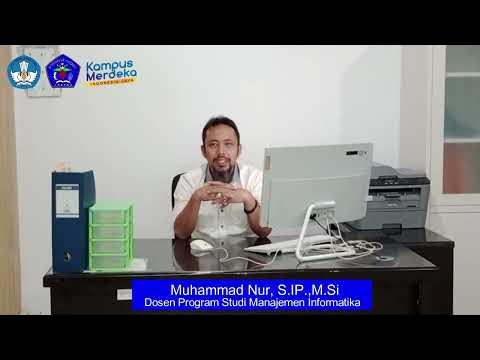LETRAMENTO ACADÊMICO
Summary
TLDRThis video explores the concept of academic literacy, focusing on the skills required for university-level reading, writing, and research. It emphasizes the importance of understanding academic standards like ABNT norms, conducting scientific research, and applying critical and analytical reading strategies. Viewers are introduced to key aspects of academic writing, including the use of theories, data, and proper structure. The video also highlights the role of various text genres, such as reviews and summaries, and invites further exploration through related courses, articles, and live discussions to deepen knowledge on the subject.
Takeaways
- 😀 The concept of 'literacy' was introduced to differentiate it from 'alphabetization' and later evolved into various forms of literacy, such as academic literacy.
- 😀 The term 'literacy' originated in Mary Catlin's book 'The World of Writing' and was influenced by globalization, where individuals needed to organize their communication abilities to function effectively in a globalized world.
- 😀 A 'literate' person is someone who can read and write, and uses these skills to participate in society.
- 😀 There are various levels of literacy depending on societal needs, such as digital literacy, which focuses on reading and writing in digital environments.
- 😀 Academic literacy refers to the knowledge and skills necessary to read, analyze, and produce academic texts at a higher education level.
- 😀 One key skill for academic literacy is mastering the ABNT (Brazilian Association of Technical Standards) guidelines to properly execute academic tasks and projects.
- 😀 Scientific research is an essential part of academic literacy, enabling students to conduct research and apply it in academic writing.
- 😀 Academic reading involves using critical and analytical reading strategies to understand increasingly complex academic texts.
- 😀 Writing in an academic context requires knowledge of various text genres, such as reviews and summaries, and an ability to write using concepts, theories, data, and facts to present ideas clearly.
- 😀 The video promotes a course on academic writing, which teaches students the step-by-step process for producing high-quality academic work.
- 😀 Additional resources, including articles and live sessions, are available to further explore academic literacy, reading, writing, and research skills.
Q & A
What is the main focus of the video discussed in the transcript?
-The video primarily focuses on academic literacy, explaining its importance and different aspects, such as reading, writing, and analyzing academic texts.
What is the origin of the term 'letramento' (literacy)?
-The term 'letramento' originated from the book 'O Mundo da Escrita' by Mary Catlin, and it emerged as a response to global changes and the need for individuals to communicate effectively in a globalized world.
How does the concept of 'letramento' differ from 'alfabetização' (alphabetization)?
-While 'alfabetização' refers to basic literacy—learning to read and write—'letramento' involves using reading and writing skills to participate fully in society, recognizing that there are various levels of literacy depending on societal needs.
What is the specific focus of 'letramento acadêmico' (academic literacy)?
-'Letramento acadêmico' refers to the use of linguistic knowledge to read, analyze, and produce academic texts, particularly in a higher education setting.
What are some key activities associated with academic literacy?
-Key activities include adhering to the ABNT standards (Brazilian Technical Standards), conducting scientific research, and engaging in critical and analytical reading of academic texts.
Why is scientific research crucial for university students?
-Scientific research is essential for university students because it forms the foundation for developing academic skills, allowing students to engage in meaningful analysis and produce well-informed academic work.
What are some strategies used in academic reading?
-Strategies for academic reading include critical reading, which involves evaluating arguments and ideas, and analytical reading, which focuses on understanding complex texts.
How does academic writing differ from other types of writing?
-Academic writing requires the use of theories, concepts, data, and facts to present well-organized ideas in a formal manner, often adhering to specific academic genres such as reviews and summaries.
What is the role of understanding academic genres in academic literacy?
-Understanding academic genres, such as reviews and summaries, is crucial in academic literacy because it helps students effectively write and analyze various types of academic texts.
How can the video’s viewers improve their academic literacy?
-Viewers can improve their academic literacy by participating in a related course on academic writing, reading the associated article on the website, and engaging with resources like live sessions and Instagram tips offered by the 'Caminho da Linguagem' platform.
Outlines

This section is available to paid users only. Please upgrade to access this part.
Upgrade NowMindmap

This section is available to paid users only. Please upgrade to access this part.
Upgrade NowKeywords

This section is available to paid users only. Please upgrade to access this part.
Upgrade NowHighlights

This section is available to paid users only. Please upgrade to access this part.
Upgrade NowTranscripts

This section is available to paid users only. Please upgrade to access this part.
Upgrade NowBrowse More Related Video
5.0 / 5 (0 votes)





